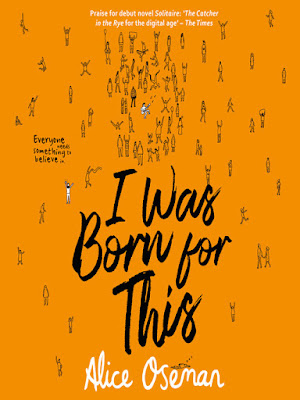Book review: Convenience Store Woman by Sayaka Murata
Convenience Store Woman
by Sayaka Murata and translated by Ginny Tapley Takemori
Finished reading: 13/06/21
My rating: 4.5/5 stars
“When you work in a convenience store, people often look
down on you for working there. […] I like to look them in the face when they do
this to me. And as I do so I always think: that’s what a human is.”
Convenience Store Woman is a Japanese novel that
follows thirty-six-year-old Keiko Furukura who has worked at the Hiiromachi Smile
Mart convenience store for eighteen years. Keiko has never felt normal and
never understood the rules of social interaction but as a convenience store
worker, the rules are laid out perfectly for Keiko to follow. Keiko is happy but
her family and friends are determined for Keiko to find a “proper” job, marry
and have children before it’s too late.
This novel reminded me a lot of Eleanor Oliphant is Completely
Fine by Gail Honeyman and I am certain that Honeyman must have taken inspiration
from Murata. There are definite parallels between the two although both have
very different angles. I absolutely loved the narrative voice in EOICF and
have since looked for something with similar impact. I came across Convenience
Store Woman by chance and the premise intrigued me but was pleasantly
surprised by its depth and nuances.
I am really surprised that this book is sold as a “funny”
story. I was almost expecting a Japanese Bridget Jones novel based on the
blurbs on the cover. After rereading these author quotes on the cover again, I almost
feel as though I read a different book. I do not think that this book is
supposed to make you laugh, I think it is supposed to make you feel either sad
or angry or both. I’m really shocked at the emphasis on comedy in the marketing
of this book as this just seems to take away from the message of the book.
CSW beautifully explores the struggle and pressures
that neurodivergent individuals face to be perceived as “normal” in a neurotypical
world. Although Murata does not explicitly label Keiko, Keiko certainly displays
traits on the autistic spectrum. I love books that feel as though I am wearing someone
else’s brain and this book certainly delivered this. I found Keiko’s behaviour
and reasoning fascinating in a depressing sort of way. Specifically, how Keiko’s
childhood experiences seemingly caused Keiko to detach herself from the world.
I absolutely loved the social commentary throughout this
book. It has a strong theme of societal pressures to conform—applicable to
neurotypical people just as much as neurodivergent people. It focuses largely on
this idea that it is more important to be perceived as happy externally than it
is to feel happy and fulfilled internally. It was interesting to see a magnifying
glass over this product of Japanese culture so often avoided. Japan
commercially sold using its kawaii appearance and we forget the more sinister work
and marital pressures.
The imagery and language used to describe the convenience
store was so effective and really brought the setting to life. You can tell this
novel was written from Murata’s experiences of working in this role. It read
like poetry in places and the way Keiko describes this sterile and robotic
environment as so warm and comforting. As someone who has worked in retail, I
found elements relatable and yet the way Keiko reacts to these in an unusual
way made me really re-evaluate these. I enjoyed seeing a convenience store
through Keiko’s eyes and it genuinely changed my perspective.
Overall, a really thought-provoking read and I’m so glad I
picked it up. I actually found the ending weirdly uplifting and the whole piece
very much felt like a protest against society. I would definitely recommend to anyone looking
for a quick read and something a bit different.




Comments
Post a Comment